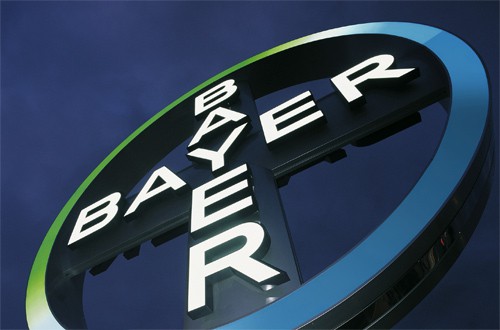
Bayer Healthcare has agreed a deal with antibody specialists Compugen to develop cancer therapies that use the body’s own immune system to target the disease.
The two companies will work together in the preclinical stage to investigate potential antibody-based immunotherapies against two targets identities by Compugen, with Bayer to take full control of further development.
Bayer’s upfront payment is relatively small at just $10m but the potential rewards for Compugen are very high as potential milestones payments are $500m.
A further $30m is available in milestones for preclinical activities, while Compugen will also receive royalties on any products developed through the deal.
Immunotherapies work by stimulating the body´s own immune cells, which become suppressed by tumours.
Compugen says it has discovered “ two novel immune checkpoint regulators” thought to play a role in this immunosuppression, and that these can be blocked in order to boost immune response.
The development of immunotherapies for cancer has become an area of growing interested for pharma companies as conventional therapies that target cancer cells directly face increasing challenges of treatment resistance.
“Antibody-based immunotherapies are promising approaches in oncology,” explained Prof Andreas Busch, member of the Bayer HealthCare executive committee and head of global drug discovery. “Immunotherapy is one of our focus areas in oncology research.”
Cancer immunotherapies currently available on the market include Bristol-Myers Squibb’s Yervoy (ipilimumab) for melanoma, which posted sales of $706m in 2012 – its first full year on the market.
Yervoy’s success seems to have inspired other companies to invest more in their own cancer immunotherapy efforts, with GlaxoSmithKline (GSK), Roche, AstraZeneca (AZ), Novartis and Merck Serono all initiating major programmes in the apst two years.
Both GSK and Roche are working with Immunocore in separate deals, each potentially worth more than $300m.
Among the major deals AZ has made since Pascal Soriot took over as CEO last year, the company’s MedImmune has teamed up with the Cancer Research Institute (CRI) and the Ludwig Institute for Cancer Research to research three investigational monoclonal antibody immunotherapies.
Furthermore, Novartis is working with the University of Pennsylvania to develop T-cell immunotherapies, while Merck Serono has decided to take a more independent stance and set up a dedicated R&D unit for cancer immunotherapies.




